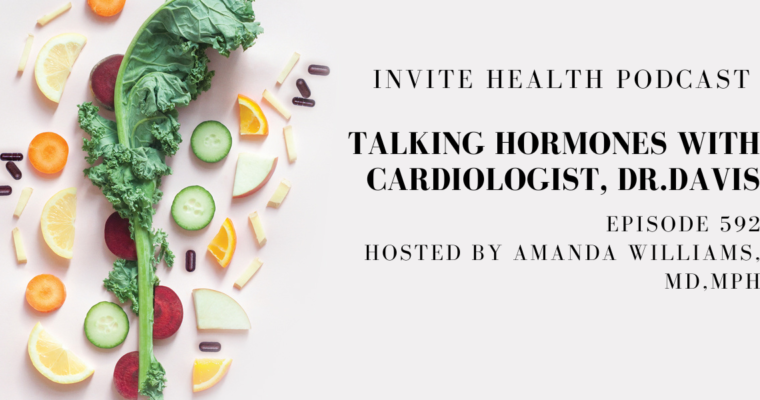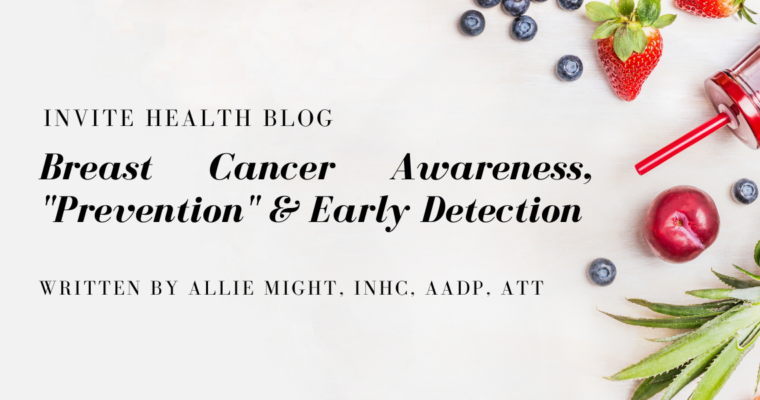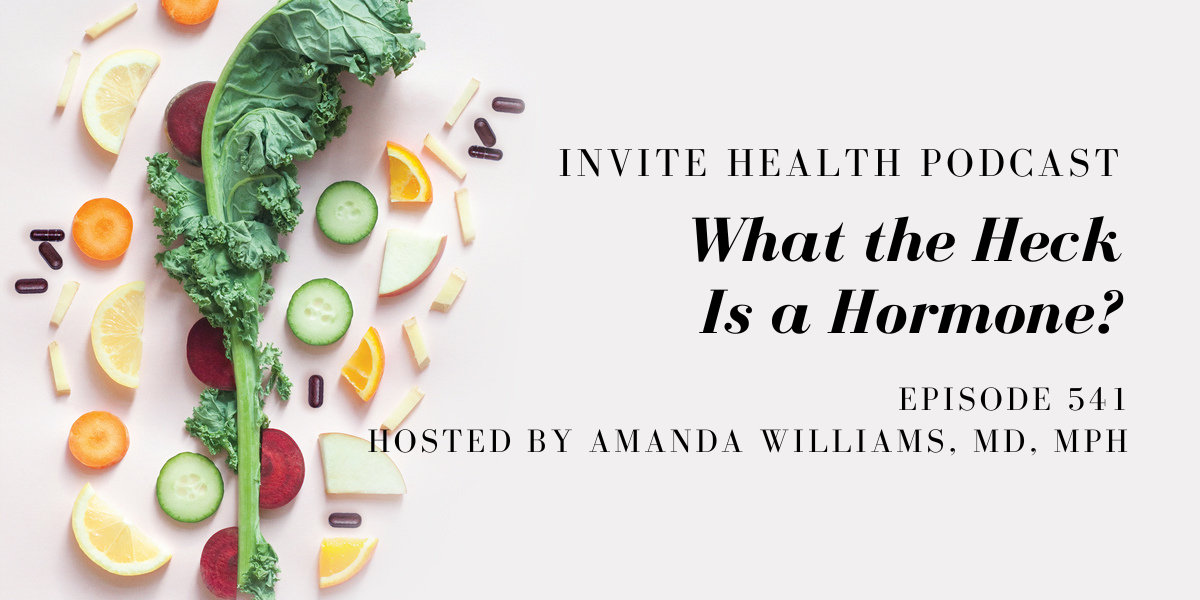Hormone
Please see below for a complete transcript of this episode.
Subscribe Today!
What the Heck Is a Hormone? – InViteⓇ Health Podcast, Episode 541
Hosted by Amanda Williams, MPH
*Intro music*
InViteⓇ Health Podcast Intro: Welcome to the InViteⓇ Health Podcast, where our degreed healthcare professionals are excited to offer you the most important health and wellness information you need to make informed choices about your health. You can learn more about the products discussed in each of these episodes and all that InViteⓇ Health has to offer at www.invitehealth.com/podcast. First time customers can use promo code PODCAST at checkout for an additional 15% off your first purchase. Let’s get started!
*Intro music*
Amanda Williams, MPH: [00:40] Did you know that one of the most important factors in anti-aging is your hormones? And did you know that hormones are incredibly important for every single system in the body? Today, I want to talk about what the heck a hormone is and how they influence the way that we feel each and every single day in particular as we get older. † [00:59]
[01:00] I’m Dr. Amanda Williams and I am the Scientific Director at InViteⓇ Health. And when it comes to hormonal imbalances, most people think about the common things and think about men going through andropause, women going through menopause, looking at thyroid imbalance. We know 5% of the US population has Hashimoto’s which is an autoimmune thyroid condition. We know that one out of every ten people in the United States have a thyroid condition and there is upwards of 60% of people who have no idea that they have a thyroid disorder. When it comes to sexual issues, 40% of pre-menopausal women have sexual dysfunction. And when it comes to endometriosis, 10 to 15% of women have endometriosis, we can look at men in hormone impact. We can look at how prostate, cardiac all play a role into hormonal fluctuations.† [01:58]
FEED YOUR THYROID THESE NUTRIENTS FOR OPTIMAL HEALTH – INVITE HEALTH PODCAST, EPISODE 181 >> Listen Now!
[01:59] So what the heck is a hormone? Well, hormones are chemicals that are synthesized and produced by specialized glands to control and regulate the activity of certain cells and organs. So these specialized glands are known as endocrine glands. So when thinking about hormones, we want to think of them as these chemical messengers. And they are sending a message in the body. They’re secreted by these glands and then they go off and they send the information. So a organ, for example can function properly and this is known as cell signaling. So the effect of hormones depends on how they’re released. So there are different ways in which hormones are released. You have autocrine these are hormones that act on these cells that are actually secreting them. We have paracrine these are hormones that act on nearby cells without having to enter the bloodstream. We have intracrine these are hormones that are produced within a cell and they act intracellular, so inside of the cell. We have endocrine this is the most common that we think about these are hormones that act on target cells. So once it’s released from its gland, it travels through the bloodstream to act on a particular cell system.† [03:12]
[03:13] So there are different types of hormones you have peptide hormones and you have steroid hormones. So peptide hormones, as the name implies, is made of amino acids. Now, peptide hormones are unable to pass through cell membranes. That contain that phospholipid bilayer or a fatty membrane. Where your steroid hormones can actually pass through so they’re fat soluble. So we have different endocrine glands and they secrete different hormones. So when we look at things like our thyroid for example, we know that the thyroid produces hormones that affect how calories are burned, how our heart rate is regulated. But we have the hypothalamus to regulate our body temperature, our emotions, our hunger how well we sleep. We have the pineal gland, this helps to produce serotonin and melatonin so can help to regulate your mood and your sleep. You have the parathyroid which sits right behind your thyroid gland. This helps to regulate calcium in the body. We have our adrenal gland which controls our stress response, as well as sex drive. You have the pituitary gland oftentimes this is known as the master control gland because the pituitary gland actually helps controlling other glands in the body. You have your pancreas oftentimes people don’t look at the pancreas as a gland, but yet it is secreting hormones such as insulin, so for the regulation of blood sugar.† [04:42]
[04:42] And then, of course, when most people think about hormones, they think about sex hormones. So you have the testes and the ovaries. So we have all these very important hormones that are released from these different glands, most commonly that people think about as cortisol, estrogen, testosterone, melatonin. But we know the we have all of these hormones that help us with daily functioning like our food metabolism, controlling our hunger, maintaining our temperature, our heart rate, regulating our mood and our cognitive function each and every single day.† [05:15]

[05:16] We know that there’s many things that can influence or dysregulate those hormonal pathways through different feedback mechanisms. So we have to be aware that hormones are really pretty darn important. So when I talk about hormonal health on different radio shows or podcasts. I often talk about the importance of having your hormone levels tested. Now, many times when I say that, just in general, people assume that I’m just talking about estrogen and progesterone or testosterone, but certainly not. When it comes to looking at your hormones depending upon what your health concerns may be. This is why I always encourage people to look at their fasting insulin level so we can look at pancreatic function. To look at their cortisol levels and DHEA to assess adrenal function. And of course we can look at the sex hormones as well. Now, when assessing sex hormones it’s very important to make sure that you’re testing estradiol, not just your total estrogens, but actually looking at your estradiol levels. † [06:17]
CHEMICALS THAT HARM YOUR HORMONES & HEALTH – INVITE HEALTH PODCAST, EPISODE 140 >> Listen Now!
[06:17] There are so many things that can influence and impact these chemical messaging system, that can screw up those signaling pathways. And we can certainly look at how nutrition has a significant impact on hormone signaling and specific nutrients and dietary patterns can influence our overall sense of well-being. So take for example, you were following a standard American diet then it’s going to make it very difficult for those endocrine glands and those different hormones signaling pathways to function properly when they’re just hopped up on sugar and bad fats. So the more we understand about how the potential of our nutrition can impact hormone levels. The better off we are and we know from scientific research and understanding more about how foods are working in our body, we can start to see that correlation between hormone sensitivities and the foods that we are eating. † [07:14]
[07:15] All of these things are very important because signaling sensitivity of hormones is directly correlated to tissue sensitivity. For example, if someone is eating a standard American diet the likelihood that they’re going to have insulin resistance is much higher, which means we are now affected the pancreatic release of that chemical messenger, insulin. And they’ve been able to show that when people adhere to a Mediterranean diet. That hormonal balance really comes in to check. And at the end of the day, we want to be doing everything in our power to have our diet positively influence our hormonal pathway and that regulation of all of the hormones. So that our heart rate and our metabolism and our mood and our sleep are all working synergistically together to make us feel good. † [08:08]
[08:08] And this is why I go back to saying, when it comes to anti-aging hormones are the primary driver to this, because once you have one disrupted hormonal signaling pathway, you will then start to influence the communication or signaling pathways of other hormones and it’s often when I’m talking to people where I explain this, your hormones are talking to your cellular DNA. So if you don’t have adequate hormones then you can start to recognize how every cell it’s like trying to power up your computer and it won’t start this is how your cells get impacted. When we have hormonal imbalances and we want to be able to regulate our metabolism, we want to be able to repair when we have an injury we want to make sure that we have of course, a healthy reproductive cycle. But as we get older, we want to make sure that we maintain a strong immune system and that we can control our mood and our sense of well-being. † [09:06]
[09:07] Now, hormones themselves are very intricate and detailed in understanding those different pathways, and what can influence those pathways is certainly part of the challenge when it comes to hormones. But the key thing that we always want to zero in on is that we want to have balance or homeostasis when it comes to hormones and creating that cellular sensitivity. We know there are so many things that can impact or throw off those chemical messengers, including stress. So when we have mental, physical, emotional stress, this can create significant dysregulation of your hormones, creating these really pronounced imbalances throughout the body and can affect everything from feeling anxious to having a hard time focusing. This is why hormones have to always be a place that you think about looking at. † [10:02]
[10:02] Ask your doctor the next time you go in and have bloodwork done to have comprehensive hormone testing. Look at your sex hormones, look at your thyroid hormone, or your adrenal hormones. This can give you a lot of insight as to how your body is managing stress, how your body is functioning on a daily basis. And when you see those abnormalities or that dysregulation of those chemical messaging systems, those signaling pathways, then you can start to make modifications to your diet, to your exercise, as well as the supplements that you are taking. So when it comes down to the basics on hormones, they’re very intricate but yet in many ways they’re very simple. It’s our bodies, chemical messengers, and without them, we would not exist. † [10:46]
[10:46] So that’s all that I have for you for today I want to thank you so much for tuning in to the InViteⓇ Health Podcast. Remember, you can find all of our episodes for free wherever you listen to podcasts or by visiting invitehealth.com/podcast Now do remember to subscribe and leave us a review. You can follow us on Facebook, Twitter and Instagram. And, we will see you next time for another episode at the InViteⓇ Health podcast. † [10:46]
*Exit music*











